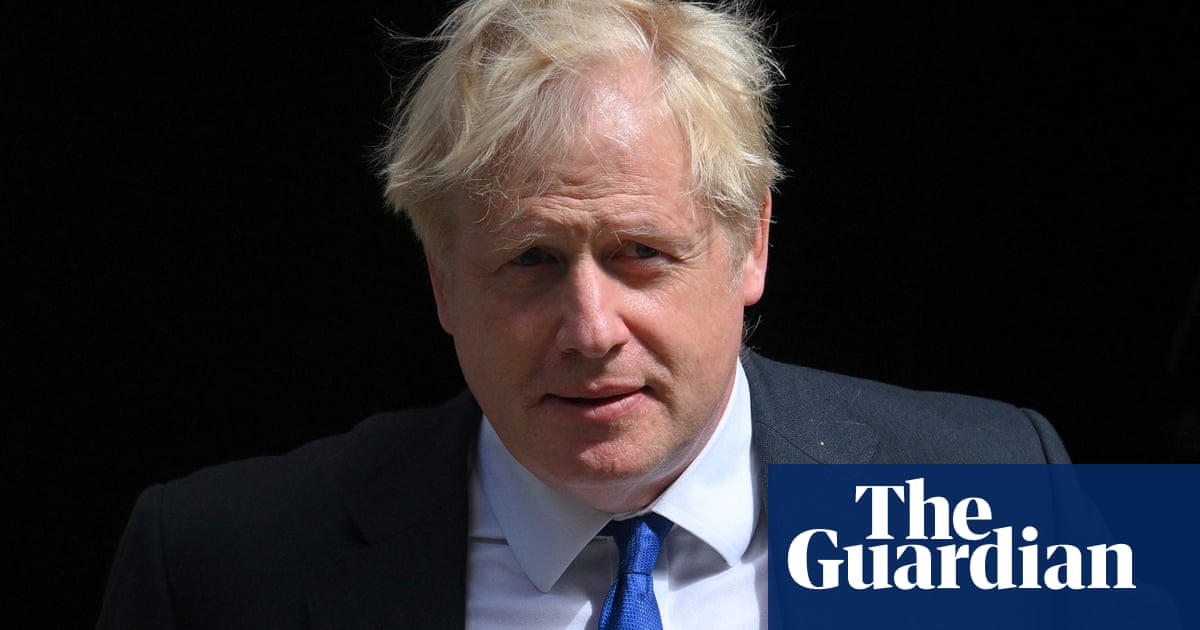
Conservative MPs do not need any new information to judge whether Boris Johnson is fit to stay in office, and since they haven’t removed him yet there has to be a good chance they never will.
Sue Gray’s report into breaches of lockdown regulations in Downing Street will embellish and illustrate a story that is already known. Laws imposed on the country in a public health emergency were flouted at the centre of government and the person ultimately responsible – the prime minister; lawmaker number one – was himself a lawbreaker. When asked about it in parliament, he lied.
That much has been known for months. Johnson’s reprobate character has been displayed for years. That makes two categories of Tory MP. There are those who were truly appalled when they realised their leader was a scoundrel, and those who never objected to his malpractice on moral grounds, but worry that it is an electoral liability.
If the first group were large enough to force their leader’s resignation, they would have done it already. The second group has enough data to infer that the Tory majority might be imperilled if Johnson leads his party into a general election, but no way of being sure. Byelection defeats, opinion polls and lost council seats prove that voters are unhappy now, but there is always the possibility they will cheer up again.
Besides, there is no substitute leader with talents obvious enough to make ditching the incumbent a low-risk gamble. The stakes feel higher as the next election gets nearer. Also, postponing action against Johnson reinforces the impression that he is a master political escapologist. It is a feedback loop: Tory MPs quail before the difficult decision and narrate that cowardice as evidence of their leader’s uncanny knack for survival.
Their weakness is his strength, as it has been all along. Johnson won the leadership in 2019 because Conservatives were panic-stricken and demoralised. The party had come fifth in European elections, taking just under 9% of the vote. The threat posed by Nigel Farage’s Brexit party felt existential. MPs who had previously sworn to obstruct Johnson’s ambitions to be leader, either because they had been personally wronged by him or just observed that he was a wrong’un, decided instead that he was their only hope of salvation.
That choice was rewarded at the ballot box, and reluctance to re-evaluate it is the prop supporting the prime minister today. It might hold him in place right through to the next election, not from any realistic expectation of another massive victory or sentimental loyalty, but because the whole point of following Johnson was to avoid confronting questions that his removal would raise all over again. He is protected by dread of seeing the cracks, the crumbling plasterwork, the mould and damp that the vivid “Boris” candidacy papered over.
There are glimpses of it in every corner, where the paper has already come unstuck. The government has no response to the cost of living crisis because the prime minister and the chancellor cannot agree on who should get help, when and how it should be funded. There are Downing Street advisers who say a windfall tax on energy companies would be “unconservative”, which is to interpret conservatism narrowly as a creed for government as protector of corporate profits, indifferent to poverty.
That is one definition, but British history affords others that include intervention in social crises. There was also once a kind of conservatism that cared about conserving things; observing the rules and conventions that are supposed to keep government honest. There was, until recently, a conservatism that recognised the rule of law as a foundation of democracy and recognised the intrinsic villainy in politicians who excuse themselves from the rules they impose on little people.
Now the Tories are led by such a man. The choice to continue under his leadership is also existential. The longer they enable a form of government that recognises no principle higher than the prime minister’s entitlement to power, the harder it gets to explain what other values the party represents.
There was a moment earlier this year when the weight of public outrage over lockdown parties was crushing the political life out of Johnson, but Tory MPs failed to finish him off. With that stay of execution they declared that it was not ethically wrong for a prime minister to cheat and lie in office, only unwise to get caught and only then for as long as opinion polls say so. If polls can change, wrong can become right.
It is too late now to go back to the point of principle. If Conservative MPs sack Johnson they would have to give a reason, and if the offence is dishonesty they must describe the lie. Where does that end? It is the stray thread that can’t be pulled for fear of unravelling the whole shoddy weave. Perhaps there are enough Conservatives with the courage to do it, if not over this scandal then the next one. Johnson certainly can’t be shamed into resignation, but that shamelessness is contagious. It is the source of resilience that makes Tories believe their current leader has powers that no other candidate could match. And once they have indulged that thought, they become unable to judge whether the absence of conscience in a prime minister is reason to sack him or back him.
Rafael Behr is a Guardian columnist












